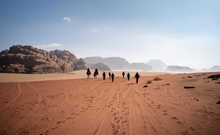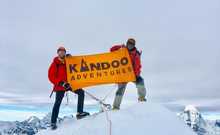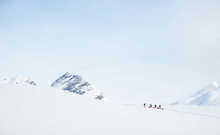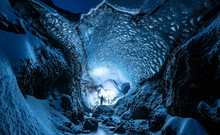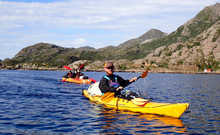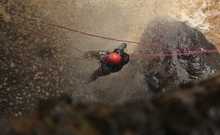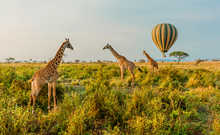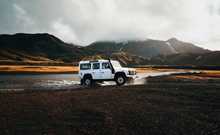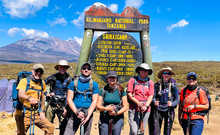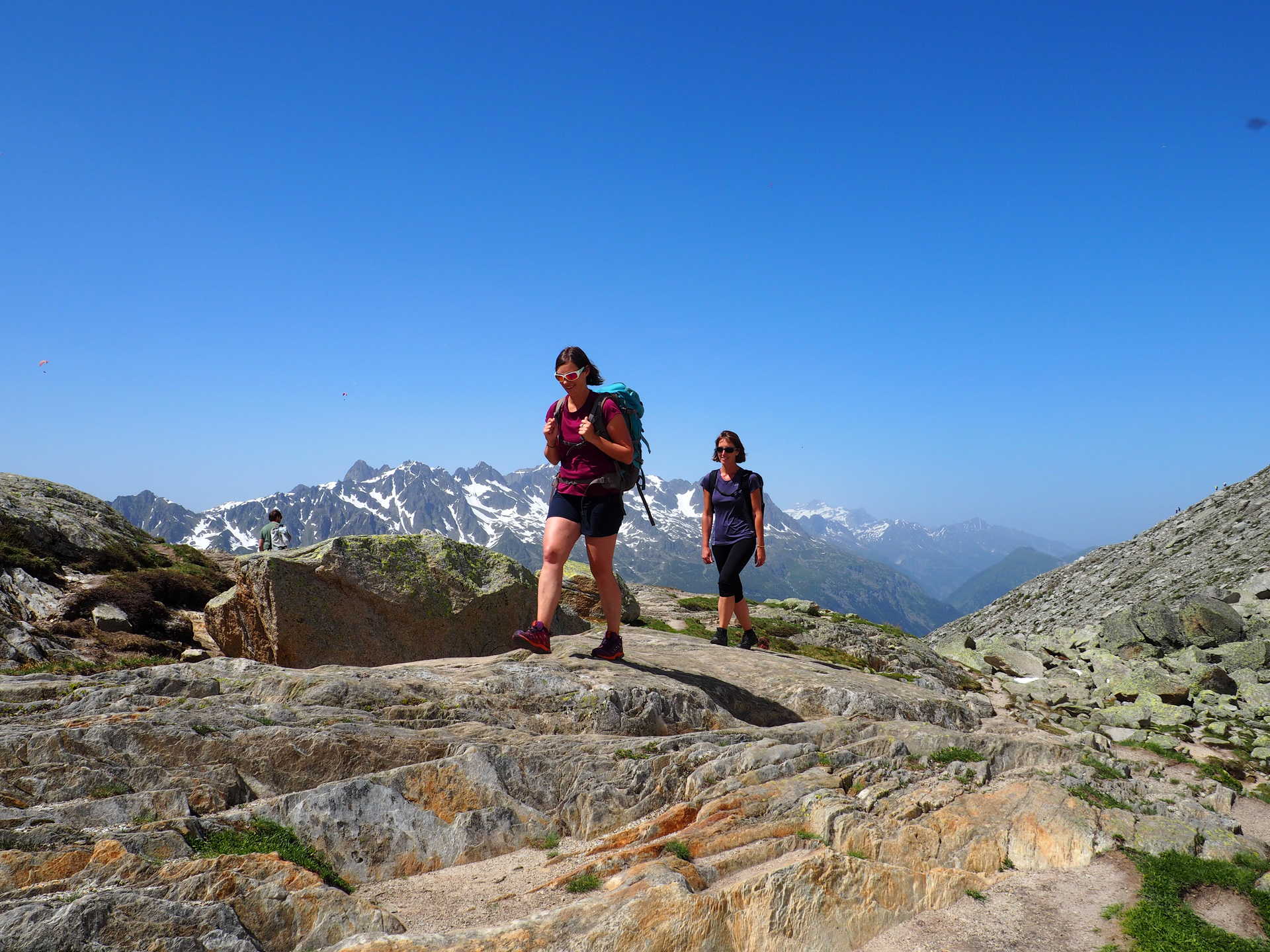Avoiding diarrhoea
Make sure that your hygiene is as good as possible to avoid picking up a stomach upset. Needless to say, a bout of diarrhoea can make a long, strenuous trek unpleasant or even impossible.
Food in the Alps is generally pure and uncontaminated. It will be up to you to ensure that the water you drink is safe, particularly in the mountains. Water in the towns and villages is generally safe. We recommend bringing a water filter or purification tablets with you on your trek. Bottled water can also be bought from shops and hotels.
Make sure you follow these simple rules at all times:
- If you aren’t absolutely certain water is pure, filter it.
- Wash your hands thoroughly after using the toilet, and before eating or handling food of any kind.
- Drink plenty to avoid dehydration.
If you do get diarrhoea, the most important thing you can do is to stay hydrated. The best thing to drink is a rehydration solution like Dioralyte. Read more about dehydration below.
Over the counter medicines like Imodium (or anything containing loperamide) are only for short term, mild diarrhoea. Some doctors recommend taking a single, 500mg dose of Ciprofxin, or any ciprofloxacin antibiotic in an emergency situation. This is a prescription medicine, and you should discuss it with your doctor before your trip.
Preventing dehydration
You can easily become dehydrated at high altitudes or when doing aerobic exercise. The lower air pressure forces you to breathe more quickly and deeply, and you lose a lot of water through your lungs. You will also be exerting yourself, and sweating.
The upshot is, as you might expect, that you’ll have to drink more water. You need to drink at least 3 litres of fluids every day while trekking. Even when you don't feel thirsty you have to drink this amount as a minimum - preferably more.
You should drink at least ½ litre (preferably a whole litre) before you set off. Make sure your water bottles don’t freeze! Wrapping the bottles in thick socks or otherwise insulating them is usually enough.
Stay on the look-out for signs of dehydration in yourself and your fellow climbers. The most common symptoms include thirst, dry lips, nose or mouth, headache and feeling fatigued or lethargic. If you think you may be dehydrated, there are two ways to tell:
- The colour of your urine. Clear or light straw-coloured urine means you are probably not dehydrated. Yellow or orange wee means you haven’t been drinking enough, and you need to up your fluid intake quickly.
- Pinch or press firmly on an area of exposed skin. If it doesn’t spring back instantly, or stays pale and bloodless for more than a second or two, you are probably dehydrated.
One last thing – remember to keep drinking on the way down the mountain, as well.
Sunburn and UV Protection
The Alps in summer are generally a pleasant place to walk with temperatures sitting in the mid to late 20s. Although this isn't baking, protection from the sun is still essential...nobody wants to have to wear a rucksack over sunburn! While a mountainous trek is hardly a day at the seaside, you will be vulnerable to sunburn if not properly protected. The thin atmosphere at high altitudes block much less of the sun’s UV rays, even on cloudy days.
The three most important things you can do to avoid sunburn are:
- Apply SPF 30 or higher sunscreen to your face, nose and ears at least 30 minutes before going out into the sun, and reapply regularly. High SPF lip balm is also a must.
- Wear a wide-brimmed hat that shades your face, nose and ears.
- Wear UV-protective sunglasses, category 2-4.
At higher altitudes the sun's rays are intensified and even on a cloudy day they can penetrate through and still burn you. On peaks climbs, the reflection off the snow will also intensify the suns rays. And don’t forget that the sun is at its strongest between 10:00-14:00 hours each day.
Eating well
Many trekkers find they struggle to eat enough whilst covering long distances. This is a real problem, as you will be burning an extra 2000 or more calories a day, and not replacing them which can cause real problems.
Just like staying hydrated, you have to eat heartily even if you aren’t hungry. Meals heavy in carbohydrates are best, because they provide long-term energy. Our cooks are used to feeding hungry trekkers, so you should have your energy needs well met without too much effort.
Snacks should be chosen carefully. Take favourite treats to make it easier to eat when you don’t feel hungry. A mix of savoury and sweet options such as chocolate, nuts and seeds, biscuits, savoury snacks and boiled sweets are generally the best choices.
Body temperature
Every mountain has its own climate, and the steep valleys of the Alps create a plethora of weather conditions. These can change quickly, and a hot and dry day will often be followed by a thunderstorm in the evening, particularly during the summer months. Although daytime temperatures are pleasantly warm, during the evenings the high valleys loose the sun early so temperatures will drop, sometimes to as low as 5 degrees. Wearing a layered outfit is generally the wisest way to make sure you stay healthy and reasonably comfortable in all conditions. In the summer months, shorts and a t-shirt will tend to suffice during the day as temperatures in the Alps tend to sit around the mid-20s. During the evenings a longer trouser, fleece and insulative layer may provide a bit of welcome warmth as the temperatures drop. On our peak trips, layering up is essential and ensuring you have a good quality base layer, both top and bottom, with plenty of thin insulative layers to add is key to staying at the right temperature.
Above all, make sure to wear wind-and water-proof, breathable clothing on your trek. Get high quality gear too, as this is definitely ‘the real thing’. Storms, strong winds and extreme temperatures at both ends of the scale must be all expected, and poor quality equipment will fail.
